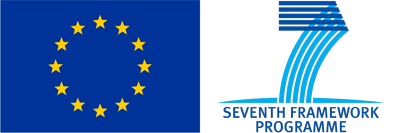Research Funders | Context
Funding bodies are key stakeholders in the open access ecosystem: they develop and mandate policies that affect how data is managed, accessed, disseminated and preserved and how funds are allocated in the various phases foreseen in the process of making research data open. Research funders include the European Union (EU) and national governments, individual public funders that distribute competitive funding, non-profit institutions and private funders. This variability in the types of research funders, depending - among others - on their public or private nature, the size and effect of funding they mobilize for research and the country circumstances impacts on the measures and strategies they adopt.
The drive for open access to research data, especially those produced as a result of public funding, is justified by reference to the public interest, yet funder policies for open access to research data remain limited, especially when compared to those for peer-reviewed publications. At the EU level, the most important funder is undoubtedly the European Commission (EC), representing an important source of competitive funding for some member states. On the basis of the size of allocated funds, the EU can have a catalyst role in the formulation of open access policies for publications and research data among member states. Setting the example as a major European public funder, the EC has elaborated a comprehensive framework to support open access to scientific information, including research data. In 2012 it passed the “Recommendation on access to, preservation of and dissemination of scientific information” and formulated a pilot action on open access to research data in the context of Horizon 2020, the main EC funding program for research for the period 2014-2020. The Recommendation calls on member states to develop comprehensive and aligned policies and strategies that will ensure open access to publications and research data from publicly funded research. The Open Data Pilot is implemented in seven areas with the aim to improve and maximize access to and re-use of research data generated by the projects.
At member state level, UK research funders are global pace-setters in policy development for research data and in comprehensively developing relevant services. In the rest of Europe, a great number of funding bodies have yet to develop policies on open access to research data or have no immediate intention of doing so, while most governmental policies and strategies concentrate in the field of governmental rather than research data. Beyond the EU, the White House issued a Directive in 2013, whereby all federal funding agencies with a $100 million/year funding for extramural research or development should require open access in their policies, both for research publications and research data.
The most significant and effective funder policies set open access to research data as the default requirement for the funded research with provision for possible exceptions. They require deposit of research data supporting publications and other important research data in certified repositories within a specific timeframe (either simultaneously with publications or by the end of the project). They require researchers to describe these and other provisions (e.g. evaluation of their data; long term preservation provisions) in mandatory Data Management Plans (DMP), which are submitted with the grant proposals and evaluated. The costs for data management are usually eligible for projects. To secure the reusability of research data and the ability to identify and measure policy compliance, funders have introduced technical specifications in their policies (e.g. digital object identifiers (DOI), specific metadata standards etc.) as well as provisions on appropriate licensing. Most importantly, efficient policies include clear descriptions of responsibilities/ expectations for the main stakeholders involved: funders, researchers (either under their capacity of grant applicants or grant holders), research institutions, data centers and repositories, and publishers. With regard to monitoring some funders include provisions on the monitoring of their policies.
Current practices demonstrate that there is no one-size-fits-all solution: different countries have different approaches towards developing such strategies and policies, dependent upon local conditions. In developing related policies, research funders are encouraged to study the policies and practices of other countries and have a solid knowledge of important issues in their own country such as (but not limited to) the available infrastructures and support services, the diversity of scientific and scholarly practices.
Article 29.3 of Model Grant Agreement: Projects participating in the Pilot on Open Access to Research Data in Horizon 2020
Regarding the digital research data generated in the action ('data'), the beneficiaries must:
- Deposit in a research data repository and take measures to make it possible for third parties to access, mine, exploit, reproduce and disseminate - free of charge for any user - the following:
- (The data, including associated metadata, needed to validate the results presented in scientific publications as soon as possible;
- Other data, including associated metadata, as specified and within the deadlines laid down in the 'data management plan';
- Provide information - via the repository - about tools and instruments at the disposal of the beneficiaries and necessary for validating the results (and - where possible - provide the tools and instruments themselves).
As an exception, the beneficiaries do not have to ensure open access to specific parts of their research data if the achievement of the action's main objective, as described in Annex 1, would be jeopardized by making those specific parts of the research data openly accessible. In this case, the data management plan must contain the reasons for not giving access.
Source: http://ec.europa.eu/research/participants/data/ref/h2020/grants_manual/hi/oa_pilot/h2020-hi-oa-data-mgt_en.pdf
RCUK Common Principles on Data Policy
- Publicly funded research data are a public good, produced in the public interest, which should be made openly available with as few restrictions as possible in a timely and responsible manner that does not harm intellectual property.
- Institutional and project specific data management policies and plans should be in accordance with relevant standards and community best practice.
- To enable research data to be discoverable and re-used, sufficient metadata should be recorded and made openly available.
- Research organization policies and practices should ensure that legal, ethical and commercial constraints on release of research data are considered at all stages in the research process.
- Those who undertake Research Council funded work may be entitled to a limited period of privileged use of the data they have collected to enable them to publish the results of their research.
- All users of research data should acknowledge the sources of their data and abide by the terms and conditions under which they are accessed.
- It is appropriate to use public funds to support the management and sharing of publicly-funded research data.
Source: http://www.rcuk.ac.uk/research/datapolicy
NIH and NEH Initiatives to Support New Types of Data Research
The NIH initiative on Big Data to Knowledge (BD2K) is directed to biomedical scientists. BD2K has the following aims:
- To facilitate broad use of biomedical digital assets by making them discoverable, accessible, and citable.
- To conduct research and develop the methods, software, and tools needed to analyze biomedical Big Data.
- To enhance training in the development and use of methods and tools necessary for biomedical Big Data science.
- To support a data ecosystem that accelerates discovery as part of a digital enterprise.
Source: http://bd2k.nih.gov/index.html#sthash.AQOOxJfr.dpbs
The Digging into the Data Challenge begun in 2009 by the NEH, and is targeted to the Social Sciences and the Humanities (SSH). It offers funding for new insights, tools and skills in the SSH by analyzing large-scale data. The initiative is now supported by a total of ten funders also from Europe, who pool resources to this end.
Source: http://www.diggingintodata.org
ESRC Research Data Policy
The ESRC Research Data Policy, published in 2010 and effective as of 2011, is a mandatory policy which requires grantees to deposit their research data and make them openly available in a timely and responsible way specifically through the UK Data Service (UKDS). UKDS has been designated to curate data in Social Research and receives direct support from the ESRC. The ESRC policy, which is characterized as very detailed, assigns responsibilities to all parties involved, provides full guidance to researchers on their obligations and addresses strategic issues such as IPR, copyright and confidentiality, security, and ethical considerations. The relationship between the ESRC and the UKDS is particularly close, with the latter providing training to grantees on data management and how to prepare their data, as well as evaluating research data for ingestion. The ESRC requires that DMPs undergo peer review and thus also provides extensive guidelines for the reviewers. ESRC addresses the issues of the quality of the research data to be curated and opened up, through the DMP, and emphasizes in its policy that 'research data must be accompanied by high-quality metadata in order to provide secondary users with the important additional information, for example, the origin, circumstances, processing/analysis and/or the researchers' management of the data'. The ESRC declares that it monitors its policy and reserves the right to withhold payments for non-compliance.
Source: http://www.esrc.ac.uk/about-esrc/information/data-policy.aspx


